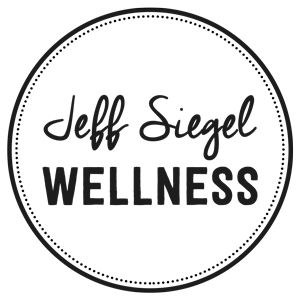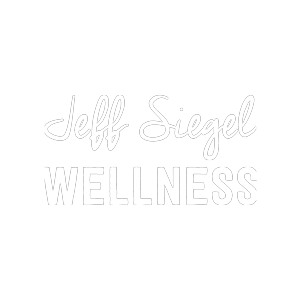Why investing in the inevitable is a surer path to happiness.
In a culture preoccupied with doing everything big, it makes complete sense that aspirations for personal development are equally as bold and extreme. Unfortunately, people often try changing too much. They blow up their routine and adopt a dozen new habits. Pretty soon the whole thing becomes overwhelming. They get frustrated, disappointed, and regret the whole process. Another case of good intentions meeting poor execution.
I’ve already written about Why Your New Year Resolutions Are Doomed and What to Do About It. This year, I’m suggesting you ditch that approach and focus on this instead.
Do not blow up your routine. Do not add in any new behaviors or even try to eliminate undesirable ones.
Instead, keep doing what you are already doing — just be better while doing it…
I’m suggesting mastering the mandatory, mundane, inescapable parts of life first: the time you spend each day walking, talking, eating, reading, etc.
It is not that audacious goals and big life decisions aren’t important, they are. But even if you achieve that big goal or make that dramatic life change, you still have to wake up and face yourself. This means doing all the little things that keep you in the game of life, like going to the bathroom, brushing your teeth, making breakfast, having conversations, etc. They are small but significant.
This is what an Attitude Audit is about: First, looking at who you are as you habitually do all the things you do. Then cultivating of a particular mode of attention and way of being that enables you to do all these things better. The cumulative effect of all these small actions you do in the privacy of your own company make a huge difference when it comes to your wellbeing and life satisfaction.
Here’s how to begin in 5 simple steps:
Step 1: Make a list of all things that you do on a daily basis.
Consider activities you do virtually everyday without fail. They can be physical or mental. They can be small or large. The important part is that you can pretty much guarantee there will be a moment in your day when this comes to pass.
Below is the list I came up with.
Wake up
Eat & Drink
Shower
Brush Teeth/Floss
Go to the bathroom
Read/respond to email
Walk
Wait for…(something)
Buy/Cook food
Stretch
Exercise
Talk
Listen
Read
Think to myself, “I really should be…”
Drink coffee
Bike
Work
Sit
Meditate
Use my phone for non-email activity
Say “I love you”
Say “Hello”
Say “Thank you”
Kiss & hug
Take vitamin supplements
Go to sleep
[I’m sure I’ve overlooked many things. For example, we all interact with money on a daily basis or have recurring thoughts like “what’s for dinner?” Also, items like “work” are huge and multifaceted. This isn’t meant to be exhaustive, but a representative sample to begin working with.]
Step 2: Go back and assess who you are when doing these activities.
What is your subjective experience of preforming these tasks?
What type of energy and engagement do you typically bring into these moments?
You can also mark activities as mandatory (m) or optional (o). Mandatory activities are necessary for survival or pretty much unavoidable in today’s society. Optional activities aren’t necessities that you could choose to change or eliminate. Some may be both depending on much you choose to follow social norms (i.e. showering every day)
Below is my list complete with engrained habits. Note that I’m looking for general trends in my mindset and behavior. Feel free to skip ahead to the next steps if you like. My list is only meant to serve as an example.
Wake up (m) — sometimes still sleepy, sometimes ready to get the day going, mostly robotic
Eat & Drink (m) — typically look forward to my meals but breakfast if often on the go, lunch is sometimes distracted in front of computer, dinners are more relaxed and slow, often I drink too fast, not paying attention to flavors
Shower (o/m) — enjoying the soothing water and chance to refresh
Brush Teeth/Floss (o) — wander aimlessly around my home, I don’t even know what is going through my mind? Multitasking, definitely multitasking.
Go to the bathroom (m) — just happy to get it done
Read/respond to email (o/m) — delete, delete, read, avoid reading, get lost down a rabbit hole of links, send a few really valuable messages
Walk (m) — paying attention to feelings in my body or planning some future activity, often seems like a good time to get some thinking done
Wait for…(something) — sometimes I just stare, lost in my own thoughts. Sometimes I reach for my phone. Sometimes I close my eyes and breathe.
Buy/Cook food (m) — cooking is highly focused, engaging experience, buying food also relatively enjoyable but sometimes just a chore to get done
Stretch (o) — breathing and connecting with my body, noticing sensations shift
Exercise (o) — exploring movement, building discipline, fully present, challenging myself
Talk (o/m) — sometimes go into “lecture mode”, sometimes I avoid talking to others because I’m too busy with my own thoughts, sometimes I talk because I want to sound smart, sometimes I talk to sooth and validate
Listen (m) — usually lots of assumptions and preconceived notions filtering what I hear, I try to listen with curiosity, especially with clients
Read (o/m) — sometimes intentional, sometimes a distraction, sometimes out of a craving for knowledge stemming from a failure to trust my own expertise
Think to myself, “I really should be…” (o) — probably my superego or internalized voices. Might serve as an important reminder to get stuff done, but often causes tension and guilt
Drink coffee (o) — usually habitual, mindless, gulping but delicious
Bike (o) — automatic, transportation, mind-wandering
Work (m/o) — can be tons of fun, fulfilling, creative, and rewarding, sometimes I’m a bit checked-out and feeling drained
Sit (m) –not always aware of my posture, hunched, enjoyable at end of day when tired
Meditate (o) — grateful for the chance to slow down and reconnect
Use my phone for non-email activity (o) — usually an escape from the present moment or time filler, sometime pseudo-important like maps and weather
Say “I love you” (o) — often habitual and too fast, rarely let the words land
Say “Hello” (m) — a courtesy, very little eye contact, not expecting real engagement
Say “Thank you” (m) — doesn’t always feel heartfelt or acknowledged
Kiss & hug (o) — nice moment of intimacy
Take vitamin supplements (o) — pop, swallow, move on
Go to sleep (m) — nice experience of easing into bed, feeling comfortable and safe
Step 3: Return to your initial list and ask yourself who do you want to be while doing these things?
What would make you feel whole, healthy, and happy while doing this?
What attitude and emotional tone would you ideally like to have?
Don’t approach this from a place of “should.” Rather think about what you could be feeling, focusing on, or thinking about. Is there something you are missing from the experience that would bring greater depth and richness to your life? You may even ask, what is the cost of doing it the way you currently are?
I’m not suggesting there is one right way to do any of these. Do them in a way that feels authentic to who you are and what you value. After all, the summation of all these little moments make up the bulk of your life. How do you want to live out these minutes and days?
Here’s my revised list:
Wake up — feel energized and ready for a completely fresh day to co-create something beautiful, meaningful, and fun. Bless each morning.
Eat & Drink — appreciating the abundance of choices. Acknowledging the people who helped grow, prepare, ship, package, sell the food. Recognizing it as a gift from mother nature. Savor the experience. Allow myself to feel satisfied. Share the moment with others.
Shower — enjoying the pleasant warm water and chance to freshen up
Brush Teeth/Floss — noticing the sensations of the bristles and feeling of cleanliness. Don’t take healthy teeth for granted.
Go to the bathroom — grateful for an abundance of toilets so I don’t have to hold it. Appreciate soft toilet paper. Happy when it doesn’t stink
Read/respond to email — be able to distinguish what really matters and what is a potential distraction. Notice if it is causing me stress. Answer important messages first. Chunk email time to designated slots so it doesn’t infiltrate the day.
Walk — be in my body. Decide how I’d like to spend my time walking, either engaging in thoughts or being present looking up ,and taking in the surroundings, or some combination of both
Wait for…(something) — take the opportunity to be mindful of my surroundings and observe the people around me, use my phone only if its for prosocial activity like messaging a friend
Buy/Cook food — loving the process cooking, relaxing and not taking myself so seriously in the kitchen; trying new recipes and ingredients, don’t rush in the supermarket, invite others into the experience to collaborate
Stretch — breathe and fully enter my body
Exercise — ask my body what it needs today and let it my workouts be creative and exploratory
Talk — be aware of what role I’m speaking from (e.g. my “expert” hat, “coach” hat”, “friend” hat, etc.) and ask is it appropriate? Am I speaking to add value, to validate their feelings, or to make myself look or feel good?
Listen — ask myself whether I am really listening or just hearing words? Can I listen for emotions and stories behind the words? Can I get curious about what they’re experiencing?
Read — ask myself “How did I end up reading this?” Was it an intentional choice or a habitual clicking/scrolling? Is this what I need to be reading now?
Think to myself, “I really should be…” — listen to what this is pointing me towards that I value? Ask, “What will this do for me? What happens if I don’t do it? What is the kind and smart way through this?”
Drink coffee — enjoy the aroma and warmth, savor and slow-down, ask whether I really need to finish my cup?
Bike — breathe in deeply. Explore balance in motion. Be kind to pedestrians and cars. Appreciate bike lanes.
Work — be grateful for the opportunity to impact others. What can I offer that will best serve the world? How can I share my unique gifts?
Sit — appreciate the time to rest my body, notice how the chair/sofa feels, take a moment to really get settled in a comfortable position. Don’t stay there too long. Listen to what my body wants.
Meditate —be open, curious, allowing, compassionate, and trusting. Breathe and smile 🙂
Use my phone for non-email activity — pause and ask myself, “Is this what I really want to be doing right now? What am I trying to achieve? Am I avoiding something?”
Say “I love you” — look into their eyes, pause, notice feelings in my heart, smile
Say “Hello” — look at their face, take in their presence, acknowledge this moment of intersection
Say “Thank you” — look into their eyes, continue by stating specifically what I’m thankful for and how their action has impacted me
Kiss & hug — slow down, feel it in my body, allow connection to be shared and absorbed fully
Take vitamin supplements — be grateful to provide my body with the additional nutrients it needs to thrive, thanks for access
Go to sleep — feeling tired from a day well lived, loving the comfort of my bed, not taking for granted my home or the person next to me, ever!
Step 4: Compare the two lists:
Where are there discrepancies?
Where is there alignment?
If the two lists are similar, kudos to you, you are already living in integrity. What you may notice is that activities done from a place of alignment are likely ones that energize you. You probably don’t mind doing them. You may even look forward to them. Imagine what it might be like if even the most mundane part of your day was interesting and enjoyable. Radical, yes. Impossible, no.
As for the other items, notice gaps in how you’re currently doing things and how you aspire to do them. Be kind to yourself. Becoming a congruent human being is hard. If there’s a lot of large gaps, don’t dismay. This gives you lots of material to work with.
Step 5: Pick One Activity to Attitude Shift
Select one item from your daily list that you’d like to make more congruent with your desired way of being in the world. For two weeks, make it your sole priority to become more mindful during this activity.
Pay attention to how you unconsciously act when this part of your day comes up. What common patterns of thoughts and feelings block you from being fully present and engaged? Practice matching up your actions with your desired way of showing up in the moment. Remember you don’t need to necessarily do the activity differently. You just need to be a different type of person while doing it.
You’ll be fighting a lot of habit energy. Just acknowledge it and see if you can shift towards your more desired state. Constantly remind yourself that you are in control of how show up in the world.
As author and healer Carolyn Myss says, “becoming a conscious person is all about realizing the full potential of the power of choice. Of all the choices that you can make, none is as empowering as the decision to live in a congruent way.”
Here are few reminders to take into consideration.
Only to tackle one item at a time & work on it for at least two weeks.Really put your attention into one item on your list. Once you have practiced consistently for 14 days, see if anything has shifted, grown, or changed. Only move onto a new domain if you are happy with the alignment you’ve created.
This is will not be easy. Parts of you will want to revert back to your old way of doing things. In fact, I can guarantee that you’ll need lots of reminders. I recommend printing up your aspirational list and place it in conspicuous places. Put notes around your home, work, and environment to remind you about the ways you can to live intentionally. Every morning and night make it a practice of returning to your list and writing down what worked well and what you’d like to try next.
From an outsider perspective, it may look as if you’re doing what you’ve always done. That is the point. Rather than trying to rearrange the outer parts of your life (i.e. “the doing”), you are rearranging your inner world (i.e. “the being”). By transforming your relationship to what you will inevitably do today, you can save a lot of energy running from or fighting it. People might not see changes in your routine, but they will notice shifts in your energy and attitude.
Don’t give up your grander goals or aspirations. I’m not suggesting you entirely forgo any larger behavior changes. But constantly ask yourself whether you’re so focused on doing big things that you’ve overlooked how you’re being right now. Can you hold your sights on grand goals while also investing in the more mundane, inescapable parts of life.
If you have spent significant time on one domain and have seen no change, consider delegating. There might be some things that no matter how hard you try, you simply can’t come to a place of acceptance, enjoyment, or appreciation. Your being just doesn’t want to budge. In such situations, see if you can outsource the task to someone else. Laundry, no problem. Brushing your teeth might be a little trickier. If it is an optional (o) activity, consider dropping it entirely (see below).
Assess why optional (o) daily activities are on your list. Why do these non-essential activities deserve a spot in your precious daily schedule? This opens up a much larger question of exploring why you do the things you do. Stay tuned for more on this topic. Meanwhile, if you focus on who you are for these little daily activities, you can change how you experience yourself and the world around you.
With great appreciation that you made it to the end of the article. What do you chose to do now?
I’m Jeff Siegel, a wellness coach and mindfulness teacher, helping people upgrade their habits and improve their health. For free bi-monthly wisdom on how to eat, move, and be healthier, sign-up for my newsletter. If you’d like to explore working together, you can schedule a private 30-min consultation call with me.




1 Comment